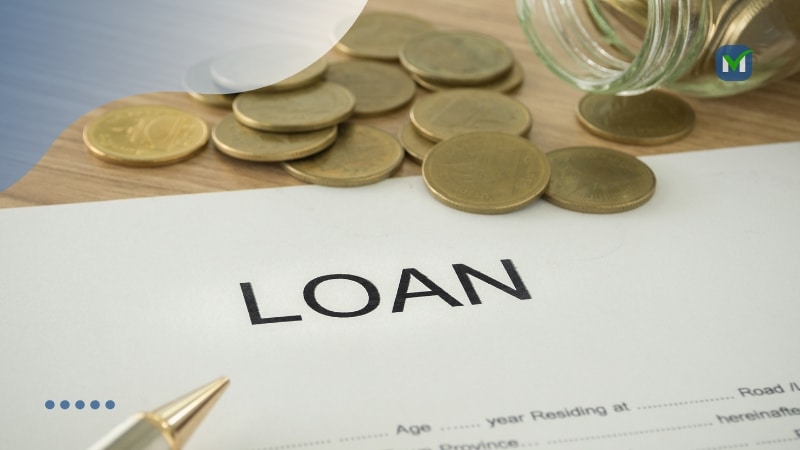Advertisements
Installment loans for bad credit offer a valuable lifeline for individuals who face financial hardships but struggle with poor credit scores. Many people find themselves in situations where they need quick access to funds, whether it’s for unexpected medical bills, car repairs, or other urgent expenses.
For those with bad credit, obtaining a loan can seem daunting. However, installment loans for bad credit are specifically designed to offer more flexible terms, often providing smaller amounts that are repaid over a set period.
Moreover, many lenders now specialize in offering installment loans for bad credit, recognizing that everyone deserves a second chance to improve their financial standing. By making regular payments, borrowers can gradually rebuild their credit scores, paving the way for future financial opportunities.
What Are Installment Loans?

Installment loans are a type of loan where borrowers receive a lump sum upfront and repay it over a fixed period, typically in equal monthly installments. They are distinct from payday loans, which require full repayment in a shorter timeframe.
Understanding the Difference Between Installment Loans and Payday Loans
When it comes to financial options for individuals with bad credit, both installment loans and payday loans with no credit check are common choices. However, there are essential differences between the two that can impact a borrower’s financial health.
Advertisements
While installment loans offer repayment over an extended period, payday loans typically require full repayment by your next paycheck. This can make payday loans riskier, especially for those with limited funds.
For individuals who struggle to pay off large sums quickly, installment loans may be a better option as they provide a structured, predictable repayment schedule.
However, payday loans with no credit check can be a faster option for those who need immediate cash and don’t have the credit history to qualify for installment loans. Understanding these distinctions helps borrowers choose the best solution for their financial needs.
Advertisements
How Installment Loans Can Help Improve Scores
One of the advantages of installment loans is their potential to help borrowers improve their credit scores over time.
By consistently making on-time payments, borrowers demonstrate financial responsibility to credit agencies. This positive payment history can gradually increase a credit score, opening doors to better financial opportunities in the future.
Tips for Using Installment Loans
- Make Payments on Time: Timely payments are crucial for improving credit scores, as they show lenders that you can manage debt responsibly.
- Choose Manageable Loan Terms: Selecting loan terms that fit your budget helps ensure consistent, on-time payments.
- Monitor Your Credit: Regularly check your credit report to track progress and identify any discrepancies that may affect your score.
Common Types of Installment Loans
There are various types of installment loans for bad credit, each serving different financial needs. Understanding these options can help borrowers make informed decisions.
Secured vs. Unsecured Installment Loans
- Secured Installment Loans: These loans require collateral, such as a car or property, which can make them easier to qualify for but come with the risk of asset loss if payments aren’t met.
- Unsecured Installment Loans: While they don’t require collateral, unsecured loans often come with higher interest rates to offset the lender’s risk.
Personal installment loans are popular among those with bad credit due to their versatility. They can be used for various expenses, including medical bills, car repairs, or consolidating high-interest debt.
Key Factors to Consider Before Applying for an Installment Loan
Before applying for installment loans for bad credit, it’s essential to weigh specific factors to ensure the loan meets your financial needs.
Interest rates on loans for those with bad credit tend to be higher, so it’s vital to understand the total cost of borrowing. Reviewing all fees associated with the loan can also prevent unpleasant surprises.
Some lenders offer more flexible terms, allowing borrowers to choose between shorter or longer repayment schedules. Shorter terms often mean higher monthly payments but lower overall interest, whereas longer terms provide lower monthly payments with more interest over time.
Alternatives to Installment Loans
For individuals who may not qualify for an installment loan or want to explore other options, alternative financing solutions may be available.
1. Credit Union Loans
Many credit unions offer personal loans to members with bad credit, often at more favorable terms than traditional lenders. Credit unions are typically more willing to work with borrowers to establish a loan that fits their financial situation.
2. Peer-to-Peer Lending
Peer-to-peer lending platforms connect borrowers with individual investors, providing a potential avenue for securing funds when traditional lenders are not an option. This approach can offer more flexibility and, in some cases, better rates.
Exploring Alternative Lenders
For borrowers seeking installment loans for bad credit, exploring reputable and flexible lenders can make a significant difference in finding favorable terms.
Some financial institutions, like Avant Money, offer tailored loan options designed to help individuals with various credit backgrounds. Avant Money provides a range of personal loan solutions, making it an excellent example of a lender committed to accessible financing for those who may not qualify through traditional banks.
With alternative lenders like these, borrowers with poor credit can often find installment with more flexible terms, allowing them to rebuild their credit over time through steady repayment.
Exploring diverse loan providers increases the chances of securing funds responsibly and sustainably, even with a challenging credit score.
FAQ: Installment Loans
1. What are installment loans?
Installment loans for bad credit designed specifically for individuals with lower credit scores. These loans are repaid over time in fixed, regular payments. Making them easier to manage compared to lump-sum repayment options like payday loans.
2. Can I get an installment loan with a bad credit score?
Yes, many lenders specialize in installment for borrowers with bad credit. While terms and interest rates may vary, these loans are often structured to accommodate individuals with less-than-perfect credit histories.
3. Are installment loans secured or unsecured?
Installment loans for bad credit can be either secured or unsecured. Secured loans require collateral, which can help borrowers qualify even with poor credit, while unsecured loans do not require collateral but may have higher interest rates.
4. How can an installment loan help improve my credit score?
If you make consistent, on-time payments, an installment loan can help improve your credit score over time. Regular payments show credit agencies that you can manage debt responsibly, potentially increasing your creditworthiness.
5. What are the risks associated?
The main risks include higher interest rates and fees due to your credit score. Failing to meet payment deadlines can harm your credit further. So it’s essential to ensure the loan terms are manageable within your budget.
Conclusion
Installment loans for bad credit can be a powerful financial tool for individuals facing credit challenges, offering an accessible way to secure funds while providing structured repayment terms. Unlike payday loans, installment loans allow for more manageable monthly payments.
However, as with any financial product, it’s essential to weigh the potential risks and benefits. While these loans offer flexibility, they often come with higher interest rates and fees due to the borrower’s credit profile.
Ultimately, installment loans can serve as a stepping stone toward financial recovery for those with bad credit. Through responsible borrowing and consistent, on-time payments, borrowers can improve their credit scores, paving the way for future financial opportunities.





